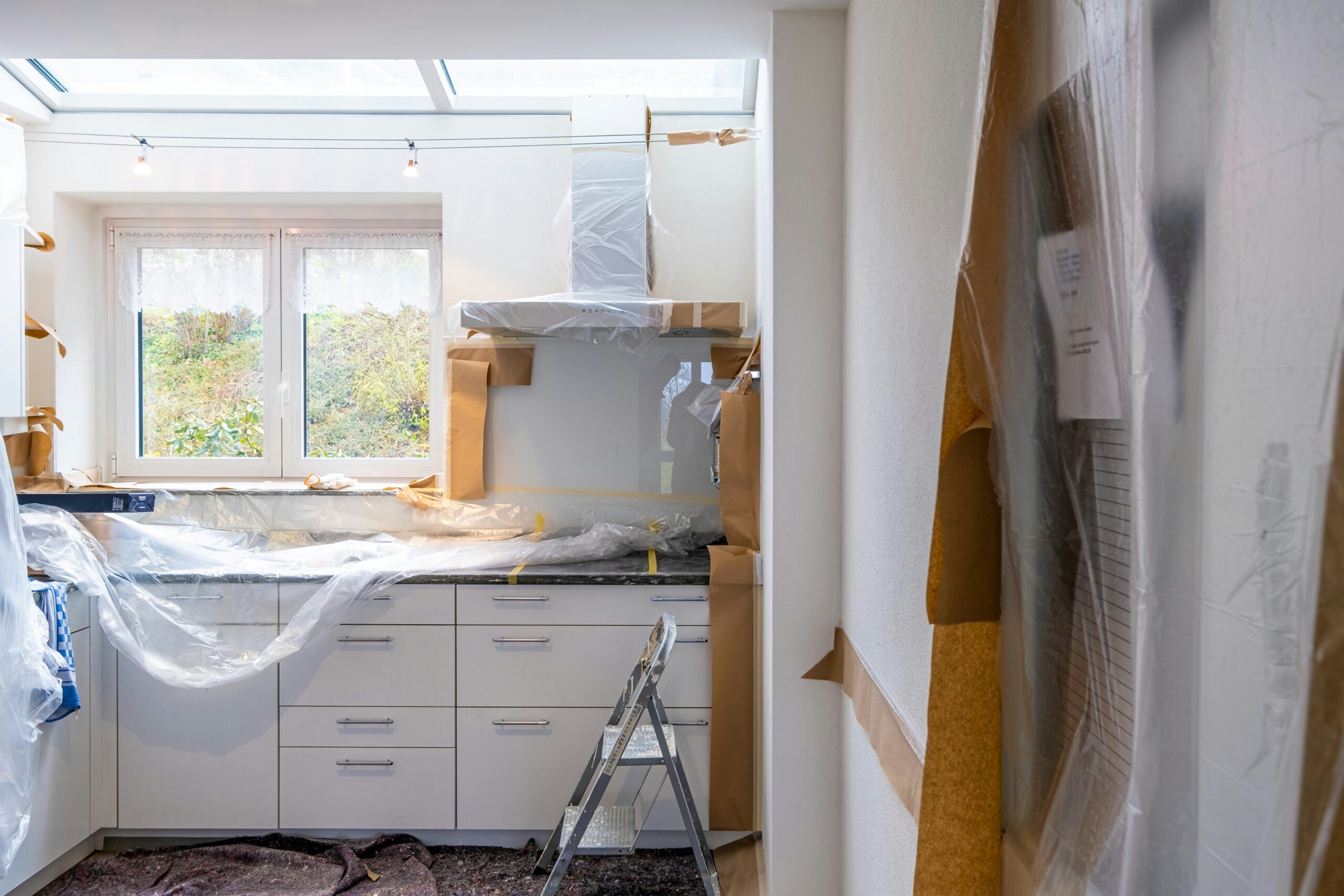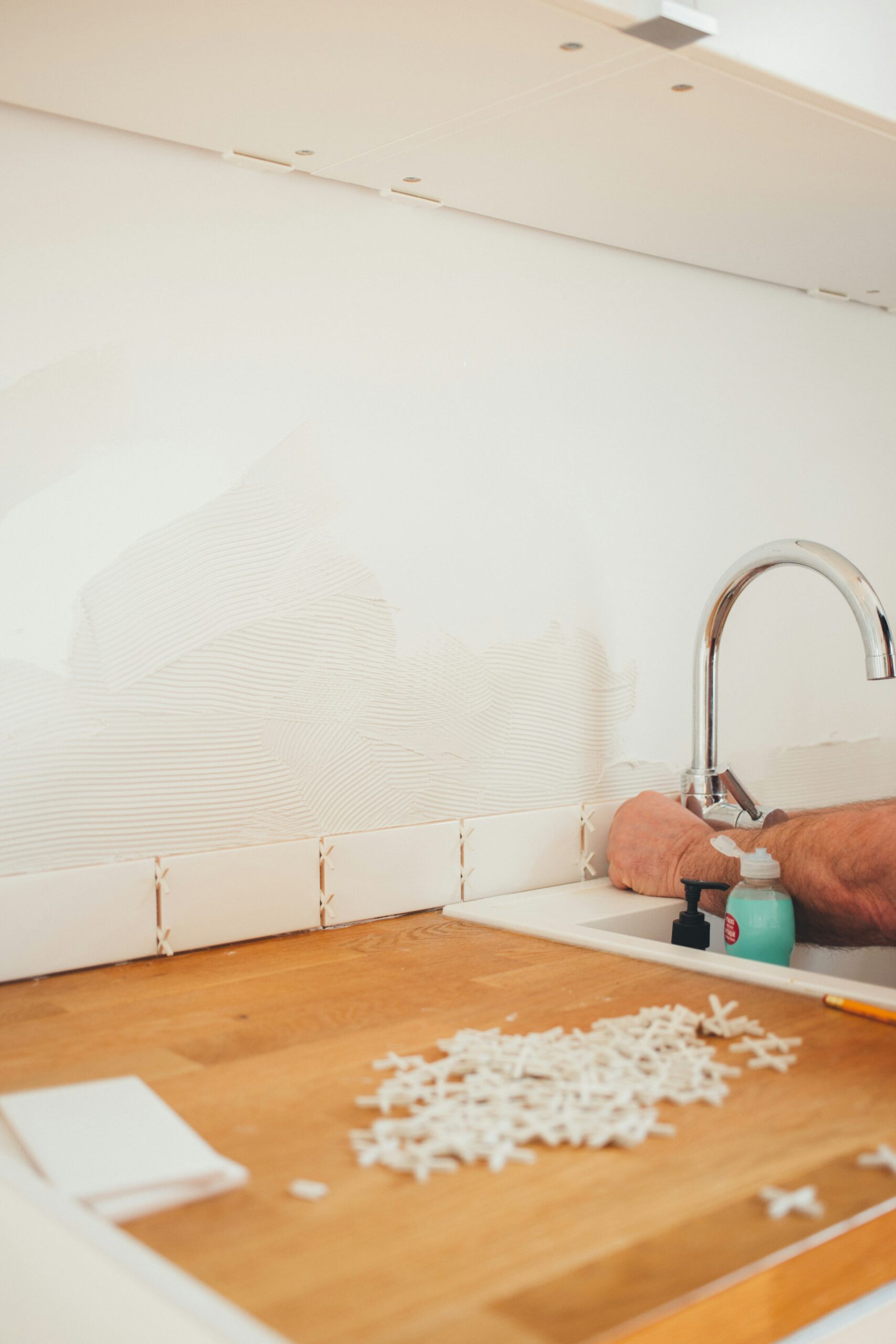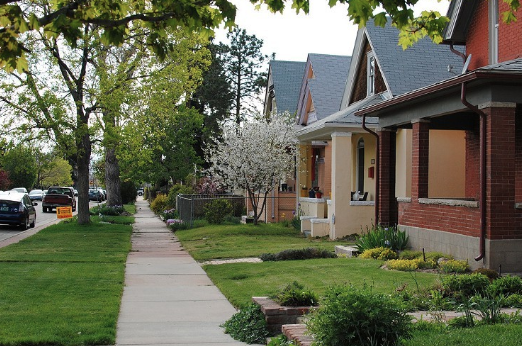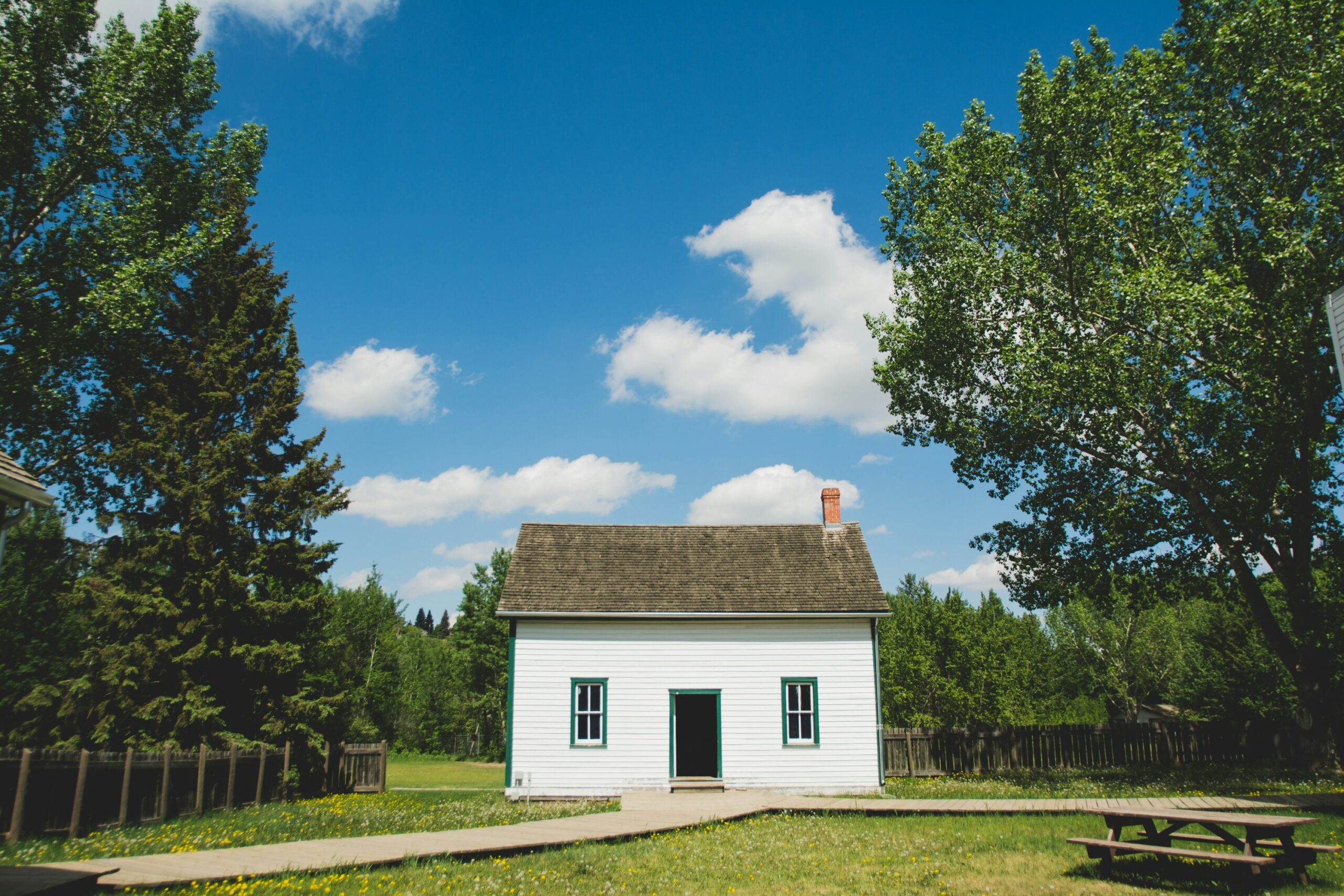Summer Home Maintenance Checklist for Denver Homeowners
July 3, 2025
Summer Home Maintenance Checklist for Denver Homeowners
July 3, 2025
Summer in Denver means sunshine, outdoor activities, and the perfect time to tackle those home maintenance tasks that keep your property in top condition. As both a General Contractor and Realtor, I’ve seen how proper maintenance protects your investment and prevents costly repairs down the road.
Our unique Colorado climate—with intense UV rays, sudden hailstorms, and dramatic temperature swings—requires specific attention to keep your home performing at its best. Here’s your comprehensive summer maintenance guide designed specifically for Denver-area homes.
Start with Your Roof: Denver’s First Line of Defense
Your roof takes a beating in Colorado, and summer is the perfect time to assess any damage from our notorious hail season. Walk around your property and look up—you’re checking for missing or damaged shingles, granule loss that appears as dark spots, and any obvious signs of impact damage. Don’t forget about your gutters, which often show the first signs of hail damage through dents or separation from the house.
While you’re up there (safely, or better yet, have a professional do this), clean out any debris that’s accumulated in your gutters and downspouts. Denver’s cottonwood trees are beautiful, but they’re notorious for clogging gutters with their fluffy seeds. Make sure water flows freely away from your foundation—this simple step prevents thousands of dollars in basement water damage that I see too often in our area.
The reality is that Denver gets hit with significant hail almost every year, and damage that goes unaddressed quickly becomes much more expensive to fix. If you suspect any damage, don’t wait—schedule a professional inspection before small problems become major headaches.
Keep Your Cool: HVAC Maintenance That Matters
Your air conditioning system works harder here in Denver than in most places due to our altitude and intense sun. The most important thing you can do is change your air filter every 30 to 60 days during summer—a dirty filter makes your system work overtime and drives up your energy bills.
Take a walk around your outdoor AC unit and clear away any debris, weeds, or landscaping that might be blocking airflow. Your system needs room to breathe, and even something as simple as overgrown bushes can reduce efficiency significantly. While you’re out there, listen to how your system sounds—unusual noises often indicate problems that are much cheaper to fix early.
Consider scheduling a professional tune-up if you haven’t had one recently. A well-maintained AC system not only keeps you comfortable during our hot summers but also lasts years longer and uses less energy. Given how hard these systems work at our altitude, this isn’t optional maintenance—it’s essential.
Water Wise: Plumbing and Irrigation Care
Summer puts extra demands on your plumbing system, especially if you have a sprinkler system. Walk through each zone of your irrigation and check for broken heads, uneven coverage, or signs of leaks. With Denver’s water restrictions and our semi-arid climate, every drop counts, and fixing leaks promptly saves both water and money.
Inside your home, summer heat can reveal plumbing issues that were dormant during cooler months. Check under sinks for any signs of leaks, test your toilets for running water, and make sure your garbage disposal is working properly—summer entertaining puts extra demands on your kitchen plumbing.
Don’t overlook your outdoor faucets and hoses. Colorado’s intense UV rays can crack rubber hoses faster than you’d expect, and a burst hose can cause significant water damage if it happens when you’re not home. Store hoses in shade when possible and replace them at the first sign of cracking or wear.
Exterior Care: Protecting Your Investment
Denver’s combination of intense sun, sudden temperature changes, and occasional severe weather is tough on exterior surfaces. Summer is the ideal time to give your home’s exterior a thorough cleaning and inspection. Wash your siding with appropriate cleaners—different materials require different approaches, and using the wrong cleaner can cause permanent damage.
Pay special attention to caulking around windows and doors. Our dry climate causes caulk to shrink and crack faster than in humid areas, creating entry points for both water and pests. Fresh caulk is inexpensive insurance against much more costly problems later.
Walk around your property and look for any gaps in siding, loose trim, or areas where paint is failing. These might seem like cosmetic issues, but they’re actually your home’s protective barrier breaking down. Addressing them promptly prevents water damage and pest intrusion that can cost thousands to remedy.
Safety First: Systems That Protect Your Family
Summer is an excellent time to test all your safety systems when you’re likely to be home and alert. Test smoke detectors, carbon monoxide detectors, and GFCI outlets in bathrooms and kitchens. Replace batteries even if they seem fine—it’s cheap insurance for your family’s safety.
Check your electrical systems, especially outdoor connections that have been exposed to weather all year. Look for loose outlet covers, damaged extension cords, or any signs of electrical problems. Summer’s increased electrical usage from air conditioning makes this especially important.
If you have a deck, patio, or other outdoor living spaces, inspect railings for stability and check that all connections are secure. Summer entertaining puts these areas to the test, and loose railings or unstable structures are serious safety hazards.
Interior Comfort: Making Your Home Work Better
Summer heat reveals comfort issues that might not be obvious during cooler months. Check your insulation levels in the attic—adequate insulation keeps cool air in and hot air out, reducing your energy bills significantly. Look for air leaks around windows and doors, and seal them with weatherstripping or caulk as needed.
Your appliances work harder in summer heat, so give them some attention. Clean your refrigerator coils to improve efficiency, check your dishwasher seals and filters, and make sure your dryer vent is clear of lint buildup. These simple tasks prevent breakdowns during the hottest months when you need these appliances most.
Consider your home’s airflow and cooling strategies. Ceiling fans can make rooms feel several degrees cooler while using much less energy than air conditioning. Close blinds or curtains during the hottest part of the day to keep sun from heating your home unnecessarily.
Smart Timing: When to DIY and When to Call Professionals
Some maintenance tasks are perfect for homeowners to tackle, while others require professional expertise. You can safely clean gutters on single-story homes, replace air filters, do basic caulking, and handle most landscaping tasks. However, anything involving your roof, major electrical work, or complex HVAC repairs should be left to licensed professionals.
The key is being honest about your skill level and the complexity of the task. A small mistake on a simple job might cost a few dollars to fix, but a mistake on electrical or roofing work can be dangerous and expensive.
Your Summer Action Plan
Rather than trying to tackle everything at once, spread your maintenance tasks across the summer months. Start with safety systems and HVAC maintenance since these affect your daily comfort and safety. Move on to exterior inspections and repairs, then handle interior tasks and efficiency improvements.
Keep a simple log of what you’ve done and when—this helps you stay organized and provides valuable information if you ever need to file insurance claims or sell your home. Well-documented maintenance is a selling point that buyers appreciate.
The Investment Perspective
Regular maintenance isn’t just about avoiding problems—it’s about protecting one of your largest investments. In Denver’s competitive real estate market, well-maintained homes sell faster and for higher prices. More importantly, preventive maintenance costs a fraction of what emergency repairs cost.
I’ve seen homeowners save thousands of dollars by catching problems early, and I’ve also seen the heartbreak and expense of deferred maintenance. A few hundred dollars spent on annual maintenance can prevent thousands in repair costs and maintain your home’s value over time.
Ready to Tackle Your Summer Maintenance?
Whether you’re planning to sell, stay put, or renovate, proper maintenance protects your investment and ensures your family’s comfort. As both a General Contractor and Realtor, I can help you prioritize maintenance tasks and identify opportunities to enhance your home’s value.
Schedule Your Summer Home Assessment:
- Comprehensive property inspection
- Prioritized maintenance recommendations
- Cost estimates for needed repairs or improvements
- Guidance on DIY vs. professional tasks
Kitchen renovations consistently rank as one of the most popular and valuable home improvement projects, and for good reason. A well-executed kitchen remodel can transform your daily living experience while [...]
Fixer-uppers can be fantastic opportunities to build equity and create your dream home at a lower entry price. As both a General Contractor and Realtor in Denver, I've helped countless [...]
Timing can make a significant difference in how quickly your Denver home sells and the price you receive. As both a Realtor and General Contractor who's helped countless homeowners navigate [...]
Summer in Denver means sunshine, outdoor activities, and the perfect time to tackle those home maintenance tasks that keep your property in top condition. As both a General Contractor and Realtor, I’ve seen how proper maintenance protects your investment and prevents costly repairs down the road.
Our unique Colorado climate—with intense UV rays, sudden hailstorms, and dramatic temperature swings—requires specific attention to keep your home performing at its best. Here’s your comprehensive summer maintenance guide designed specifically for Denver-area homes.
Start with Your Roof: Denver’s First Line of Defense
Your roof takes a beating in Colorado, and summer is the perfect time to assess any damage from our notorious hail season. Walk around your property and look up—you’re checking for missing or damaged shingles, granule loss that appears as dark spots, and any obvious signs of impact damage. Don’t forget about your gutters, which often show the first signs of hail damage through dents or separation from the house.
While you’re up there (safely, or better yet, have a professional do this), clean out any debris that’s accumulated in your gutters and downspouts. Denver’s cottonwood trees are beautiful, but they’re notorious for clogging gutters with their fluffy seeds. Make sure water flows freely away from your foundation—this simple step prevents thousands of dollars in basement water damage that I see too often in our area.
The reality is that Denver gets hit with significant hail almost every year, and damage that goes unaddressed quickly becomes much more expensive to fix. If you suspect any damage, don’t wait—schedule a professional inspection before small problems become major headaches.
Keep Your Cool: HVAC Maintenance That Matters
Your air conditioning system works harder here in Denver than in most places due to our altitude and intense sun. The most important thing you can do is change your air filter every 30 to 60 days during summer—a dirty filter makes your system work overtime and drives up your energy bills.
Take a walk around your outdoor AC unit and clear away any debris, weeds, or landscaping that might be blocking airflow. Your system needs room to breathe, and even something as simple as overgrown bushes can reduce efficiency significantly. While you’re out there, listen to how your system sounds—unusual noises often indicate problems that are much cheaper to fix early.
Consider scheduling a professional tune-up if you haven’t had one recently. A well-maintained AC system not only keeps you comfortable during our hot summers but also lasts years longer and uses less energy. Given how hard these systems work at our altitude, this isn’t optional maintenance—it’s essential.
Water Wise: Plumbing and Irrigation Care
Summer puts extra demands on your plumbing system, especially if you have a sprinkler system. Walk through each zone of your irrigation and check for broken heads, uneven coverage, or signs of leaks. With Denver’s water restrictions and our semi-arid climate, every drop counts, and fixing leaks promptly saves both water and money.
Inside your home, summer heat can reveal plumbing issues that were dormant during cooler months. Check under sinks for any signs of leaks, test your toilets for running water, and make sure your garbage disposal is working properly—summer entertaining puts extra demands on your kitchen plumbing.
Don’t overlook your outdoor faucets and hoses. Colorado’s intense UV rays can crack rubber hoses faster than you’d expect, and a burst hose can cause significant water damage if it happens when you’re not home. Store hoses in shade when possible and replace them at the first sign of cracking or wear.
Exterior Care: Protecting Your Investment
Denver’s combination of intense sun, sudden temperature changes, and occasional severe weather is tough on exterior surfaces. Summer is the ideal time to give your home’s exterior a thorough cleaning and inspection. Wash your siding with appropriate cleaners—different materials require different approaches, and using the wrong cleaner can cause permanent damage.
Pay special attention to caulking around windows and doors. Our dry climate causes caulk to shrink and crack faster than in humid areas, creating entry points for both water and pests. Fresh caulk is inexpensive insurance against much more costly problems later.
Walk around your property and look for any gaps in siding, loose trim, or areas where paint is failing. These might seem like cosmetic issues, but they’re actually your home’s protective barrier breaking down. Addressing them promptly prevents water damage and pest intrusion that can cost thousands to remedy.
Safety First: Systems That Protect Your Family
Summer is an excellent time to test all your safety systems when you’re likely to be home and alert. Test smoke detectors, carbon monoxide detectors, and GFCI outlets in bathrooms and kitchens. Replace batteries even if they seem fine—it’s cheap insurance for your family’s safety.
Check your electrical systems, especially outdoor connections that have been exposed to weather all year. Look for loose outlet covers, damaged extension cords, or any signs of electrical problems. Summer’s increased electrical usage from air conditioning makes this especially important.
If you have a deck, patio, or other outdoor living spaces, inspect railings for stability and check that all connections are secure. Summer entertaining puts these areas to the test, and loose railings or unstable structures are serious safety hazards.
Interior Comfort: Making Your Home Work Better
Summer heat reveals comfort issues that might not be obvious during cooler months. Check your insulation levels in the attic—adequate insulation keeps cool air in and hot air out, reducing your energy bills significantly. Look for air leaks around windows and doors, and seal them with weatherstripping or caulk as needed.
Your appliances work harder in summer heat, so give them some attention. Clean your refrigerator coils to improve efficiency, check your dishwasher seals and filters, and make sure your dryer vent is clear of lint buildup. These simple tasks prevent breakdowns during the hottest months when you need these appliances most.
Consider your home’s airflow and cooling strategies. Ceiling fans can make rooms feel several degrees cooler while using much less energy than air conditioning. Close blinds or curtains during the hottest part of the day to keep sun from heating your home unnecessarily.
Smart Timing: When to DIY and When to Call Professionals
Some maintenance tasks are perfect for homeowners to tackle, while others require professional expertise. You can safely clean gutters on single-story homes, replace air filters, do basic caulking, and handle most landscaping tasks. However, anything involving your roof, major electrical work, or complex HVAC repairs should be left to licensed professionals.
The key is being honest about your skill level and the complexity of the task. A small mistake on a simple job might cost a few dollars to fix, but a mistake on electrical or roofing work can be dangerous and expensive.
Your Summer Action Plan
Rather than trying to tackle everything at once, spread your maintenance tasks across the summer months. Start with safety systems and HVAC maintenance since these affect your daily comfort and safety. Move on to exterior inspections and repairs, then handle interior tasks and efficiency improvements.
Keep a simple log of what you’ve done and when—this helps you stay organized and provides valuable information if you ever need to file insurance claims or sell your home. Well-documented maintenance is a selling point that buyers appreciate.
The Investment Perspective
Regular maintenance isn’t just about avoiding problems—it’s about protecting one of your largest investments. In Denver’s competitive real estate market, well-maintained homes sell faster and for higher prices. More importantly, preventive maintenance costs a fraction of what emergency repairs cost.
I’ve seen homeowners save thousands of dollars by catching problems early, and I’ve also seen the heartbreak and expense of deferred maintenance. A few hundred dollars spent on annual maintenance can prevent thousands in repair costs and maintain your home’s value over time.
Ready to Tackle Your Summer Maintenance?
Whether you’re planning to sell, stay put, or renovate, proper maintenance protects your investment and ensures your family’s comfort. As both a General Contractor and Realtor, I can help you prioritize maintenance tasks and identify opportunities to enhance your home’s value.
Schedule Your Summer Home Assessment:
- Comprehensive property inspection
- Prioritized maintenance recommendations
- Cost estimates for needed repairs or improvements
- Guidance on DIY vs. professional tasks
Buying your first home in Denver is an exciting milestone, but it can also be overwhelming in our competitive market. As both a Realtor and General Contractor who's helped countless [...]
Kitchen renovations consistently rank as one of the most popular and valuable home improvement projects, and for good reason. A well-executed kitchen remodel can transform your daily living experience while [...]
Fixer-uppers can be fantastic opportunities to build equity and create your dream home at a lower entry price. As both a General Contractor and Realtor in Denver, I've helped countless [...]






